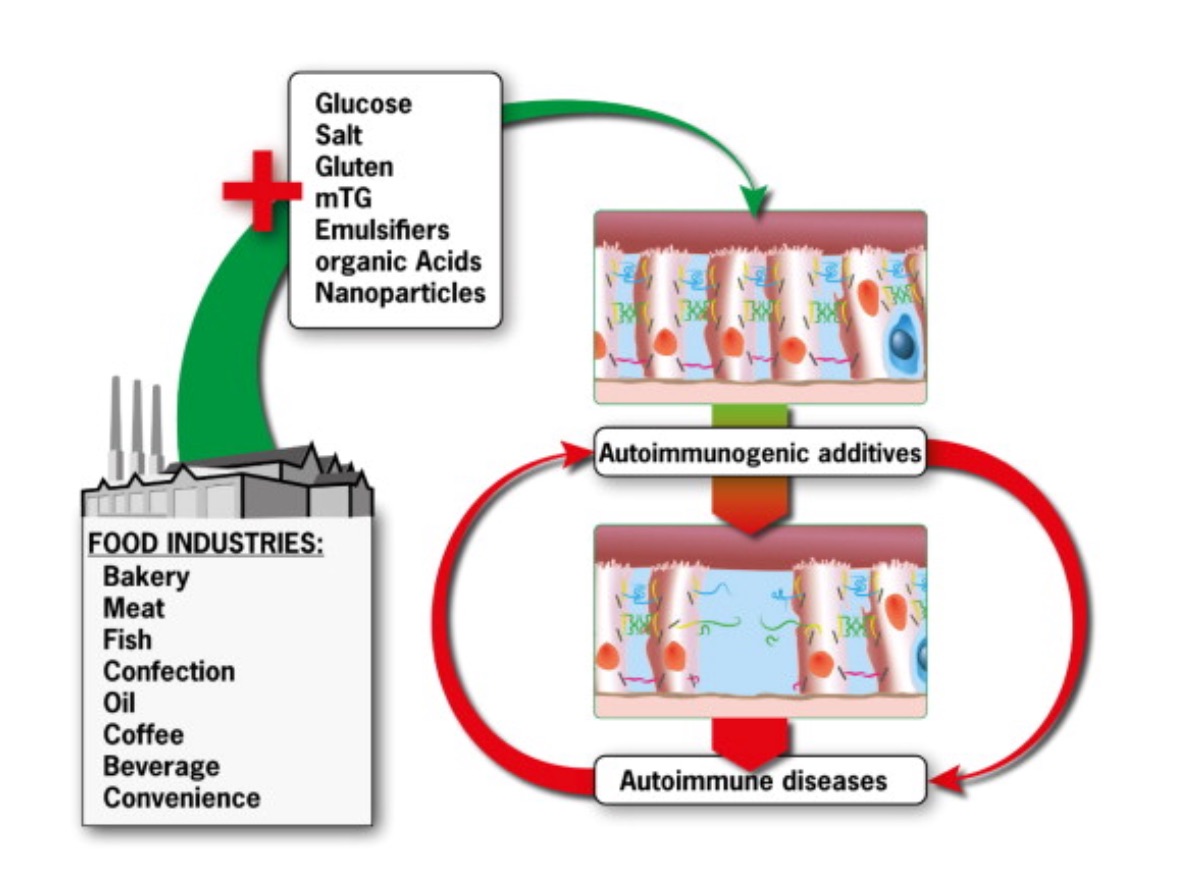
A recent study has put forward the idea that the rise in autoimmune disease may be the result of food additives damaging the gastrointestinal mucosa and increasing intestinal permeability or “leaky gut”.
Autoimmune related diseases are on the rise, particularly in Western countries. In Australia approximately 1 in 31 Australians have some form of autoimmune disease. These diseases are considered as being chronic and incurable and include type 1 diabetes, coeliac disease, ulcerative colitis, multiple sclerosis, Crohn’s disease, autoimmune thyroiditis, and many others. Together they constitute a major public health concern and burden.
Although the underlying cause of autoimmunity is not well understood, environment, including nutrition, is becoming increasingly implicated.
The rise in autoimmune incidence has paralleled the increase in industrial food processing and the subsequent consumption of food additives. There is a direct relationship between food additives, intestinal permeability and autoimmune disease. For autoimmune disease to take hold, there must be a disruption of the mucus protective layer of the gut lining. Once the protective layer of the gut is breached, the external environment (within the gut) can leak into the blood and interact with the immune system, triggering an immune response.
This prompted researchers to investigate whether increased intestinal permeability, induced by industrial food additives may explain the surge in autoimmune disease.
The typical Western diet is high in the consumption of processed and “fast foods”. This type of diet is high in fat, trans fatty acids, cholesterol, protein, sugar and salt. Needless to say, it is also high in food additives.
This study looked at seven food additives that are regularly eaten by default when consuming these highly processed foods. These include sugars, salt, emulsifiers and surfactants, alcohol, gluten, microbial transglutaminase (mTG) and nanoparticles.
The authors of the study believe that all seven of these common additives are linked to increased intestinal permeability by disrupting the tight junctions that make up the intestinal wall. The disruption of these tight intestinal cell wall junctions correlates strongly the pathogenesis of autoimmune disease by allowing foreign material to interact with the immune system activating an autoimmune cascade.

The picture above outlines the sequence of events by which industrial food additives induce autoimmune diseases.
- Commonly used food additives used in processed foods disrupt the tight intestinal cell wall junctions
- With the increase intestinal permeability of the tight junctions, foreign immunogenic particles (antigens) are able to interact with the host immune system
- The immune system activates an autoimmune cascade
This study is a reminder to be mindful of the consumption of processed foods that are high in food additives, certainly the ones mentioned in the study.
The integrity of the gut wall can be assessed via an Intestinal Permeability Test. The Intestinal Permeability Test directly measures the ability of two non-metabolised sugar molecules, mannitol and lactulose, to permeate the intestinal mucosa (lining of the gut). Measuring the recovery of these sugars in the urine accurately reflects the extent of intestinal permeability or malabsorption. Read more about the Intestinal Permeability Test and for which health conditions the test is recommended.



